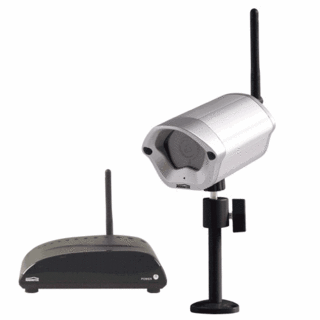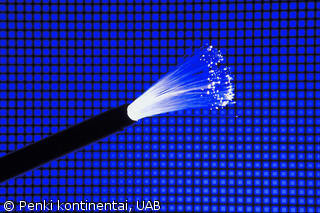A two-cents per minute surcharge on Internet calls.
Published:
13 June 1999 y., Sunday
Kiwi Internet users and ISPs are outraged at a planned move by New Zealand_s major telco to introduce a two-cents per minute surcharge on Internet calls.Telecom New Zealand, the country_s largest telco and monopoly provider of local loop connections to virtually all households announced Thursday that as of August, ISPs and Net surfers would have to dial a special prefix to go online or face a two cents per minute surcharge on their calls. Citing the excessive burden which Internet calls are placing on the New Zealand telephone network, Telecom NZ says that by using the special 0867 prefix, data calls can be routed through its "intelligent network", thus preserving the integrity of the telephone system. "We don_t want the situation where someone is unable to make a 111 (emergency service) call because the lines are overloaded with Internet users" said Telecom NZ spokesman Glen Sowry. He said that the two cents per minute charge is simply there as an incentive for people to switch to using the new prefix and that providing the change is made, nobody will be charged the fee -- others likely to be directly affected by the change have labeled the fee an Tim Wood of Internet Service Provider IHUG has slammed Telecom NZ_s move. "How can they announce the move to providing a flat rate service and then turn around and blame the Internet for overloading their network just a week later?" he asks. His comments refer to Telecom NZ_s recent introduction of a flat-rate for Internet access through its own ISP service XTRA. Until this announcement XTRA, the country_s largest ISP, was charging up to $2.50 per hour for Net access. New Zealand residential telephone users normally pay no per-minute charges for telephone calls, a privilege protected by the "Kiwi Share" -- a provision of the sale contract which was produced when the former state-owned telco was privatized. Telecom NZ_s announcement of the two cent per minute fee is seen by most to be a clear breach of this Kiwi Share agreement and several ISPs have already met to discuss a legal challenge to the move.
Šaltinis:
Internet
Copying, publishing, announcing any information from the News.lt portal without written permission of News.lt editorial office is prohibited.
The most popular articles
Software company announced new structure_ of it_s business.
more »
 Just a few weeks ago, the world's tiniest video camera was as small as a grain of rice. Today, the world's NanoEst camera is even smaller.
more »
Just a few weeks ago, the world's tiniest video camera was as small as a grain of rice. Today, the world's NanoEst camera is even smaller.
more »
 During the experiment two research groups managed to overcome a symbolic 100 TB/s optical fiber data transmission speed limit.
more »
During the experiment two research groups managed to overcome a symbolic 100 TB/s optical fiber data transmission speed limit.
more »
 Apple’s long–awaited online storage service for iTunes could be named iCloud, if only rumours are to be believed.
more »
Apple’s long–awaited online storage service for iTunes could be named iCloud, if only rumours are to be believed.
more »
 The founders of video-sharing site YouTube have bought bookmarking service Delicious from Yahoo.
more »
The founders of video-sharing site YouTube have bought bookmarking service Delicious from Yahoo.
more »
 The successful raid by hackers on Sony’s PlayStation Network is already being ranked among the biggest data thefts of all time.
more »
The successful raid by hackers on Sony’s PlayStation Network is already being ranked among the biggest data thefts of all time.
more »
 Apple has denied that its iPhones and 3G iPads have been secretly recording their owners' movements.
more »
Apple has denied that its iPhones and 3G iPads have been secretly recording their owners' movements.
more »
 Customers who have waited nearly 10 months for the white version of the iPhone 4 won’t have to wait much longer. The Great White iPhone 4 is finally here.
more »
Customers who have waited nearly 10 months for the white version of the iPhone 4 won’t have to wait much longer. The Great White iPhone 4 is finally here.
more »
 Researchers at Georgia Tech University are teaching a robot the basics of dialogue. Named "Simon", the robot has already been taught how to attract a person's attention but eventually, it's hoped he'll be able to interact and converse with humans in daily life.
more »
Researchers at Georgia Tech University are teaching a robot the basics of dialogue. Named "Simon", the robot has already been taught how to attract a person's attention but eventually, it's hoped he'll be able to interact and converse with humans in daily life.
more »
 3D? Terribly lame when it's tossed into devices as a bullet point feature. Trimensional for iPhone takes a picture of your face and maps your mug in a 3D model.
more »
3D? Terribly lame when it's tossed into devices as a bullet point feature. Trimensional for iPhone takes a picture of your face and maps your mug in a 3D model.
more »
 The European Union is to investigate whether internet service providers (ISPs) are providing fair access to online services.
more »
The European Union is to investigate whether internet service providers (ISPs) are providing fair access to online services.
more »